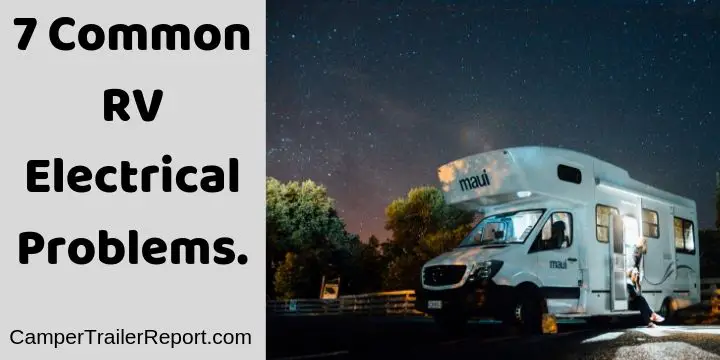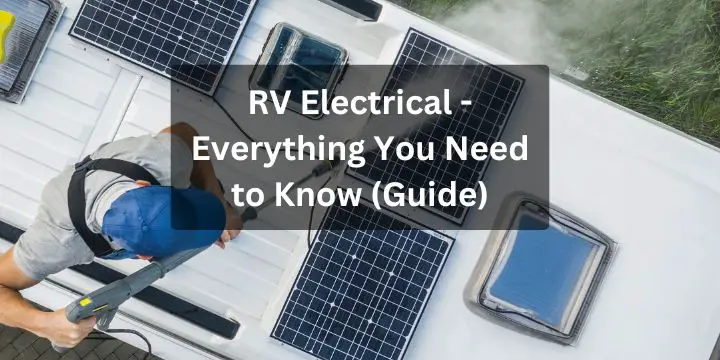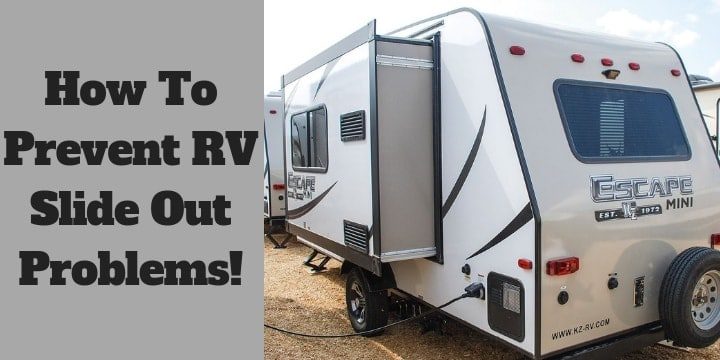7 Common RV Electrical Problems.
In Recreational Vehicles(RVs), electrical systems are more complex than in common vehicles. There are two 12V systems and one 120V system.
This may come as a surprise to you but RVs need electric power while on the road and when parked hence the three distinct systems.
The 120V system is used to power things like refrigerators, bathwater, and microwaves.
The systems are made to consume low energy but are known for another characteristic, they are notoriously fussy and can break without notice.
In this article, you will learn 7 common RV electrical problems and methods used to fix them to get you back and running.
Fuses and Breakers.
<RV’s industry is worth billions of dollars because each year more than 42 million people go camping. It is quite unfortunate that the camping trip can be brought to a standstill due to a component worth 10 dollars. We’re definitely talking about fuses and circuit breakers. When you experience a power problem, the first thing you should check is the power breakers.
If this is the cause of power shortage, unplug all the systems connected to the power breaker and reset it to default. Replace the damaged fuse with one matching the amperage to avoid burning the system. There are standard color codes for fuses:
Black= 1A; Grey=2A; Violet= 3A; Pink= 4A; Gold= 5A; Brown= 7.5A; Red= 10A; Blue=15A; Yellow= 20A; Clear= 25A; Green= 30A
You can sum the colors to find out the maximum current your fuse can support.
12V System.
Your RV has a series of batteries used to generate 12V power. The electricity is used to power up lights, leveling jack, propane detectors, and circuit board. There is also a converter which converts 120V into 12V. If you are having problems with the lighting system or the indicators, then the problem is the 12V system. Use the voltmeter to test if your batteries need replacement.
> You may also like:45 RV Accessory Must-Haves for Your Travel Trailer<<
120V system.
The main cause of this system failure is newly installed home appliances. Check their description usually indicated in Voltage, Amperes, and Watts. Ensure they match the manufacturer’s description.
Overloading The Power System.
Outside Power Supply.
If you test your batteries, and they seem to be in a perfect condition, the problem might be an external one. Ungrounded or corroded wires may come into contact with the RV causing a short-circuit. Drive your RV to a different site and connect it to a different power supply and test if your 12V systems and 120V are in perfect condition.
Solar Panel.
Solar panels are prone to damage due to the constant movement of the RV. If you experience any electrical problem, assume all the other possible sources and check the solar system and its connections. You can consult a professional who will check whether the solar panels’ power and connections are as specified in the manual.
Circuit Boards.
Scrutinize your circuit breaker panel which is usually located near the 12V batteries. Close all minor circuit breakers and finally the main intake circuit breaker.
Check if there is any acid accumulation on the board. Clean it with 12 ounces (0.45 kg) of water mixed with a teaspoon of baking powder. Acids have ions which can transmit electricity causing a short circuit which may blow-up the breakers.
> You may also like:How To Prepare Your Truck for Towing: 9 Important Tips<<
BOTTOM LINE.
Even the tiniest failure can keep you docked all day long. Ensure you have a fully functional toolbox. Take a few fuses with you, extra connecting wires and a voltmeter.
> You may also like:Worst 5th Wheel Brands to Avoid <<
Related Questions:
Can I plug my 30 amp RV into my house?
The average house has an Amp electrical outlet of 15/20 amps, so you will need to buy and install a 30/50 amp adapter with more ‘prongs’ that will allow an efficient transfer of the electricity. After you have done that you can plug in your RV without any problems.
Is it bad to leave your RV plugged in all the time?
Yes, there is no problem in leaving your RV charging all the time however you need to make sure that your RV has ‘Wet cell batteries’ which are batteries that contain various conductive acids that allow for your batteries to be recharged without any problems.
You also need to check that the charger you are using to charge your battery has not got a charge rate that is too high for your batteries which will damage them by overcharging them.
However, even if the charger is the right specification for your batteries you need to make sure not to leave it for too long.
This is where ‘smart chargers’ come in, they are chargers that limit or stop the charge automatically once your batteries reach full charge preventing your batteries from getting damaged.
Will an RV converter work without a battery?
It is recommended that you run your RV converter with a battery as the majority of converters depend on the battery to help carry out the converting of ‘Alternating Current’ into Direct Current’. However it can depend on the charger and camper model, if it says in the instruction pamphlet that it is impossible then you can, but if you are not sure it is best to use an RV converter with a battery.
How does a converter work in an RV?
A converter takes in ‘Alternating Current’ abbreviated as AC and it converts it down to ‘Direct Current otherwise known as DC. The difference between the two is that an Alternating Current’s voltage moves in cycles while a Direct Current’s voltage is steady which results in the two being compatible with different types of electrical appliances.
How much electricity does an RV use in one month?
Every RV is different however the average is estimated to be 20 kWh a day which converts to about 600 kWh a month and about 7000 kWh a year. It all really depends on how often you use your RV, what appliances you use for how long and how many total appliances you have in your RV.
Ways to reduce electricity consumption by your RV would be to add insulation which will reduce the need to spend electricity on heating or cooling yourselves down during the summer using air conditioning.
How much electricity does an RV use in one month?
Every RV is different however the average is estimated to be 20 kWh a day which converts to about 600 kWh a month and about 7000 kWh a year. It all really depends on how often you use your RV, what appliances you use for how long and how many total appliances you have in your RV.
Ways to reduce electricity consumption by your RV would be to add insulation which will reduce the need to spend electricity on heating or cooling yourselves down during the summer using air conditioning.
Is a 30 amp RV plug 110 or 220?
A 30 amp RV plug will cope with 110 volts, you can easily tell what type of RV plug you have by looking at the number of prongs on it if your RV plug has 3 prongs this means that it is a 30 amp RV plug. The majority of modern RV models work with only 110 volts, the bigger models generally work with 220 volts.
There are, however, adapters and heavy-duty extensions cords that will allow you to run more appliances in your RV if that is what you require.
> You may also like: How to winterize RV without antifreeze? <<



